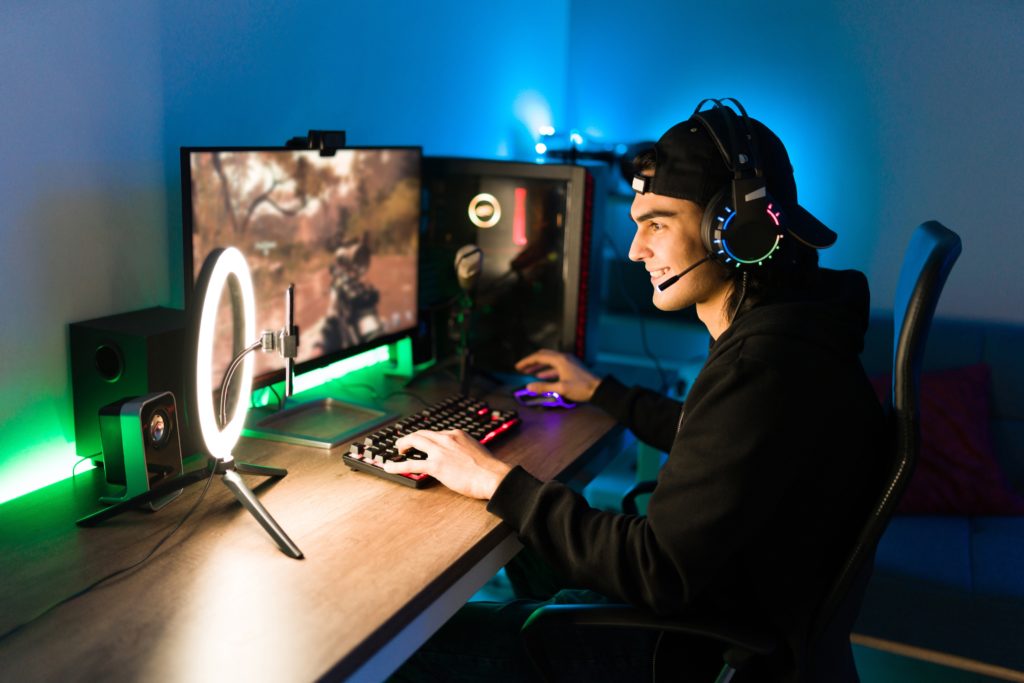Quick Hits
Daily brief research updates from the cognitive sciences

Iconsidered many titles for this short review. It could have read “Gaming Improves Mental Health of Teenagers” – that may have garnered a few more clicks – not stricly true though. It could also have read “Gaming Has No Impacts on Mental Health of Teenagers”, however, the data can be seen in two ways.
So, I settled on the simple question so as not to mislead too much. But the long and short of it is that we do not need to be overly concerned with gaming rotting our kids’ brains, causing emotional withdrawal, and a host of mental health problems. In the vast majority of cases there is no impact and in a sizable proportion heavy gaming seem to improve mental health! So, let’s dig into what this study did and didn’t find.
This data comes from the 2021 OxWell survey which analysis data from surveys of school children between 12 and 18 in the UK. This dataset had 12’725 participants. And what did they find?
They found that:
- 31.2% play games for at least 3.5 hours a day – this is the “heavy gamer” group
- There was no significant correlation between playing games and mental health issues
- 8% reported not gaming
- They classified 6 types of gamers
- 8% were classed as maladaptive (i.e. experience negative effects)
So, on average no real cause for concern. However, there are some surprising and worrying results also. One surprising result is that 44% of heavy gamers experienced higher well being than those who games less or not at all. Who would have though it? On the negative side there is, indeed, a subgroup who do experience negative effects. A small proportion of the heavy gamers experience a loss of control and wellbeing issues.
A notable subgroup was the 2% who are classed as maladaptive phone gamers, playing mostly on their phone, being mostly female, and are more likely to have experienced abuse and other traumatic events. This seems to point that traumatic life experience are pushing some individuals to maladaptive behaviours – and this also opens the door to intervening and being able to identify these and hence also pre-empt the issues.
It therefore seems that gaming is not the cause of mental health issues but can contribute to underlying issues. Of course, the argument could also be that gaming reduces other activities and so can also over longer terms have a negative impact. However, I reported here that those who spent most time on social media were also most social in person – also a surprise. Whether this translates over to gaming, I don’t know, but good to know at least.
But for now, we know that gaming shouldn’t be a worry for parents or others in society, but we do need to be able to identify and support those who are prone to maladaptive behaviours – be that in gaming, or other areas.

Andy Habermacher
Andy is author of leading brains Review, Neuroleadership, and multiple other books. He has been intensively involved in writing and research into neuroleadership and is considered one of Europe’s leading experts. He is also a well-known public speaker, speaking on the brain and human behaviour.
Andy is also a masters athlete (middle distance running) and competes regularly at international competitions (and holds a few national records in his age category).
References
Simona Skripkauskaite et al
Time Spent Gaming, Device Type, Addiction Scores, and Well-being of Adolescent English Gamers in the 2021 OxWell Survey: Latent Profile Analysis”
JMIR Pediatrics and Parenting, 18.11.2022
https://pediatrics.jmir.org/2022/4/e41480/
More Quick Hits
So, Meditation Doesn’t Change Your Brain – Or Does It?
editation can actually change your brain. "Oh, no it can’t!" say these researchers. "Oh, yes it can!" say a lot of other researchers. Does this start to sound confusing? Well, it does because there has been plenty of evidence that...
The Life Factors that Make Lonely People Lonely
Quick HitsDaily brief research updates from the cognitive sciences ou may assume, logically at first glance, that not having contact to people is the most important factor in loneliness. And obviously this does have a large impact — but...
How Music Helps With Collective Grief
his study recently out analyses a fascinating episode in China at the start of the pandemic. A group of international musicians in Shenzhen produced a viral hit in China. This was a cover version of Michael Jackson's “you are not alone”...
Why it pays for companies to help workers have a good day in the office
usiness and executives in those businesses are more than keen to get a competitive advantage. To this end they invest heavily in technology and getting the right people to do the job. But, I am sure, we are all more than aware that the work...
Vaccination to Keep Your Memory?
Quick HitsDaily brief research updates from the cognitive sciences ho wouldn’t want to keep their memory when aging?! Well, researchers have just announced some promising results in mice enabling them to keep their memories and avoid some of...
Can Having More Children Reduce Cognitive Functioning?
Quick HitsDaily brief research updates from the cognitive sciences aving more children and late life cognition is not something that is generally researched. There are more obvious avenues such as diet, education, exercise, or socio-economic...






